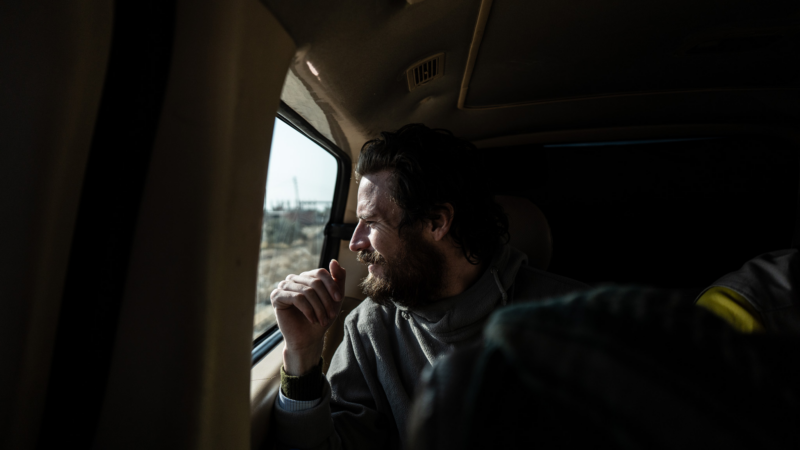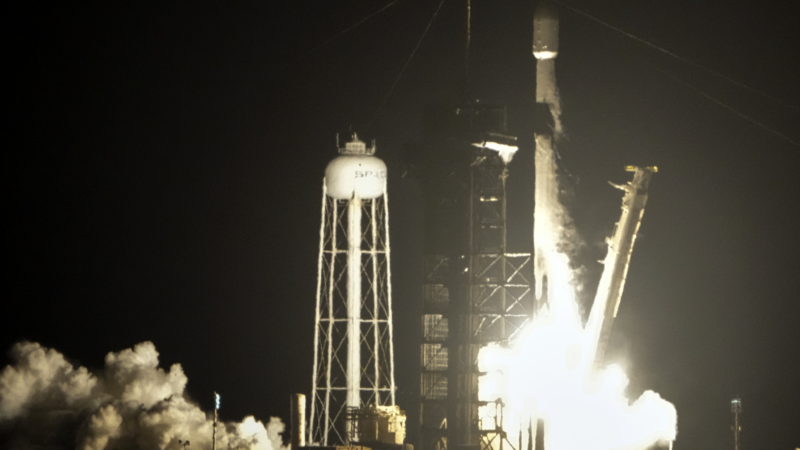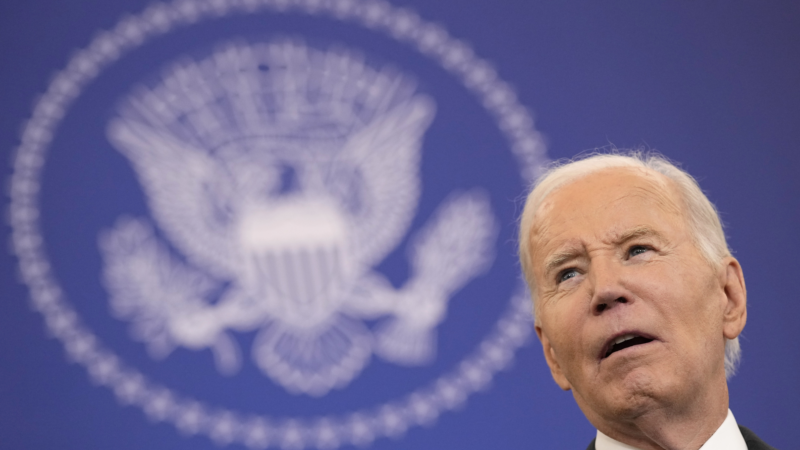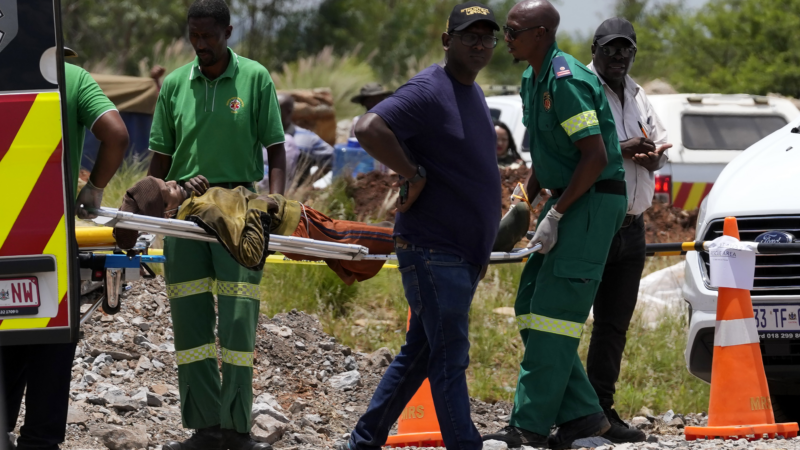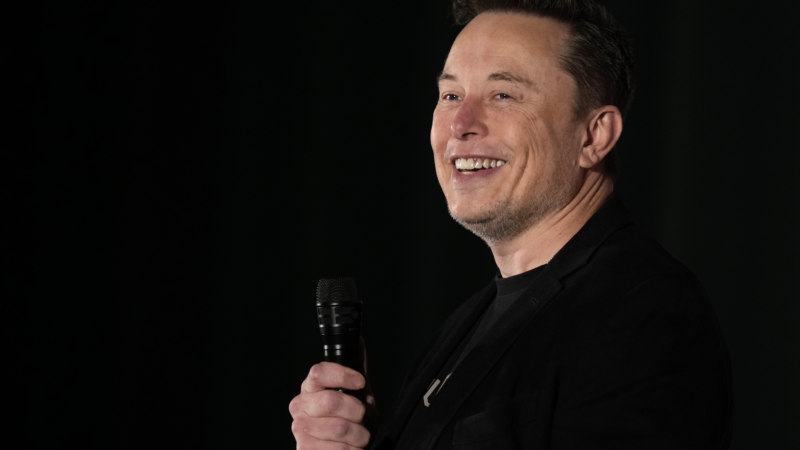American citizen Travis Timmerman is now with U.S. forces after being found in Syria
ALONG THE M2 HIGHWAY in southern Syria — The journey of a young Missouri man freed from a Syrian prison when the regime fell earlier this month began with a wilderness religious pilgrimage earlier this year and ended on a remote desert highway. That is where he was handed over to U.S. custody on Friday.
A U.S. fighter jet flew overhead as the American man walked with an official from Syria’s interim government to meet U.S. special forces positioned in front of MRAP armored vehicles on the deserted highway.
The former lawyer and writer is known as Pete Timmerman to Missouri authorities who were searching for him. But he just calls himself Travis.

A U.S. special forces operative frisked Timmerman for weapons, and then a commanding officer asked him to confirm his identity.
Asked for his full name, he said, “Just Travis.”
Timmerman, 29, confirmed he had been held in detention for seven months and that he had entered Syria from Lebanon.
With that, the officer reached out his hand and said, “Travis — welcome home.”
After hugging a Syrian American activist, the Syrian official and some of the Syrian fighters who had been taking care of him, Timmerman was escorted into one of the American armored vehicles and driven away.

Earlier in the day, NPR had accompanied the convoy bringing Timmerman from Damascus to southern Syria, near a U.S. base not far from the Jordanian border. Over breakfast before the convoy departed, Timmerman spoke with NPR about his time in prison, his Christian faith — and what drove him to Syria.
Eating olives, he used one of his long fingernails to carefully scrape all the flesh from the pit, as he did in prison to avoid wasting any of them.
Timmerman said he did not want to give formal interviews or have his voice recorded because it did not fit with the spiritual modesty he worked to cultivate. He allowed photos to be taken. He said he spent much of his time in prison meditating, achieving a spiritual clarity that he had never had.
“My world changed,” he said.

In the Syrian prison, he said, he reflected on his life before his arrest. He had been a lawyer in Chicago, practicing family law and writing what he described as a coming-of-age novel. He said he does not plan to publish the novel because he is not interested in commercial ventures.
“God has since called me to serve him,” he said.
Timmerman had told his mother when he left the U.S. that he was going to Hungary. He did not want to worry her. Instead, he traveled to Beirut via the Czech Republic and walked across the border into Syria with a smuggler. He was arrested after fasting for three days in the Syrian mountains, when he went to gather cherries from an orchard and was spotted by a border guard.

He says he is now a better person because of the time he spent in prison.
When NPR contacted Timmerman’s mother, Stacey Collins Gardiner, she said: “Tell him I love him very, very much and I’ve been crying for him every day. I’ve been a nervous wreck, it’s just been crazy for me.”
After his release along with other detainees when the regime of Bashar al-Assad fell, Timmerman was found walking barefoot in a Damascus suburb. The family of a Syrian woman who was also freed took him to their home and gave him tea and oranges.
When Mouaz Moustafa, a Syrian American activist, learned that an American had been found, he contacted U.S. officials and brought Travis to Syria’s foreign ministry. There Timmerman had his first shower in seven months. Foreign ministry staff bought him running shoes and new clothes.

“The new government in Damascus is acting in good faith,” said Moustafa, director of the Syrian Emergency Task Force. “But this illustrates the importance that there need to be official delegations to Damascus.”
The U.S. has no direct diplomatic presence in Syria. Moustafa said he knows of at least six other Americans missing in Syria. He believes that others, not imprisoned, have never been formally reported as missing.
“No one knew that Travis was in Syria when he went missing,” he said.
Bill Chappell contributed to this story from Washington, D.C.
Transcript:
ARI SHAPIRO, HOST:
In Syria, the interim government handed the U.S. military a young man from Missouri today. He was freed with thousands of Syrian prisoners when the regime fell to opposition forces a week ago. Pete Timmerman, who now calls himself Travis, was arrested in Syria seven months ago. He had crossed over from Lebanon by foot on a religious pilgrimage. NPR’s Jane Arraf was in a convoy that handed him over to U.S. forces on a desert highway in a remote corner of southeastern Syria, and she joins us now from a base near the Syrian border with Jordan. Describe what happened in this handoff.
JANE ARRAF, BYLINE: Well, I’ll start at the end. We’d driven about 4 hours from Damascus to get to the meeting point where U.S. Special Forces were waiting with armored vehicles. So Travis gets out of the vehicle where he’s being guarded by Syrian fighters, and he’s frisked by one of the U.S. troops to make sure he has no weapons. Then he answers questions from the commanding officer, there in the middle of the highway. Let’s listen.
(SOUNDBITE OF ARCHIVED RECORDING)
UNIDENTIFIED OFFICER: Can I get your full name?
TRAVIS TIMMERMAN: It’s Travis – go by.
UNIDENTIFIED OFFICER: Can I get your birthday?
TIMMERMAN: It’s February 12, 1995.
UNIDENTIFIED OFFICER: OK. How long were you in detention?
TIMMERMAN: Seven months.
UNIDENTIFIED OFFICER: And which country did you come from to come into Syria?
TIMMERMAN: Lebanon.
UNIDENTIFIED OFFICER: Travis, welcome home.
TIMMERMAN: Thank you.
UNIDENTIFIED OFFICER: Yeah.
ARRAF: He was traveling with a Syrian American activist, Mouaz Moustafa, from the Syrian Emergency Task Force, and a political official from the interim Syrian government. Both had been taking care of him. He’d been barefoot when he was found, so the Syrians bought him shoes and all the clothes he was wearing. There was a lot of hugging and back-slapping, and then he was led into an armored vehicle and drove away.
SHAPIRO: Tell us more about what you learned about how Travis came to be arrested and how his time in prison was.
ARRAF: Well, he told me that God called him to Damascus. And he flew first to Prague. He told his mother he was going to Hungary because he said he didn’t want to worry her. Then he flew to Lebanon and walked across the border with a smuggler. And, Ari, he spent three days on a mountain, fasting, with no food or water, he says. When he went down to gather cherries from an orchard on the third day, he was spotted by a border guard and arrested. He said he wasn’t beaten or tortured, unlike thousands of Syrians in prison, and he spent his time meditating and says he’s now a better person for it.
He was skinny, but he looked healthy. His nails are very long. And at breakfast, he sat there and scraped off every bit of an olive from the pit with his fingernail because that’s what they did in prison because olives were precious. He has no passport. He entered illegally. So he has to get those documents in order, but he wants to go back to Damascus as soon as possible. He says, God told him in a dream that’s what he had to do.
So let’s keep in mind that this is just a couple of days after he’s been freed, and he could well change his mind. He wants to see his family, he says, but he doesn’t want to go back to the U.S. NPR contacted Travis’ mother, Stacey Collins Gardiner, in Urbana, Missouri, to tell her he’d been handed over to the Americans. She broke down.
(SOUNDBITE OF ARCHIVED RECORDING)
STACEY COLLINS GARDINER: Tell him I love him very very much, and I’ve been crying for him all – every day. I’ve been a nervous wreck. It’s been crazy for me.
ARRAF: She hadn’t known what had happened to her son up until just a few days ago.
SHAPIRO: There are other foreigners who had been arrested by the Syrian regime, including, notably, American journalist Austin Tice. Is there any new information on him?
ARRAF: I asked the officials from the Syrian interim government who handed over Travis about that, and he said they’d been searching for any information that would allow them to bring Tice back to his country and his family. But so far, he says, they haven’t uncovered anything. He said they would continue those efforts, though.
SHAPIRO: That’s NPR’s Jane Arraf in Syria. Thank you.
ARRAF: Thank you, Ari.
2 private lunar landers head toward the moon in a roundabout journey
In a two-for-one moonshot, SpaceX launched a pair of lunar landers Wednesday for U.S. and Japanese companies looking to jumpstart business on Earth's dusty sidekick.
Biden moves to lift state sponsor of terrorism designation for Cuba
President Biden notified Congress of his intent to lift the U.S. label of Cuba as a state sponsor of terrorism as part of a deal aided by the Catholic Church to free political prisoners on the island.
Dozens of survivors and dead pulled from abandoned South African mine
The mine has been the scene of a tense standoff between police and miners since authorities launched an operation to force the miners out by cutting off food and water from the surface.
South Korean law enforcement officers detain impeached President Yoon
Yoon was brought into custody about three hours after hundreds of law enforcement officers entered the residential compound in their second attempt to detain him over his imposition of martial law last month.
SEC sues Elon Musk, says he didn’t disclose Twitter ownership on time before purchase
The U.S. Securities and Exchange Commission says Musk failed to disclose his ownership of Twitter stock in a timely manner before buying the site and underpaid by $150 million for shares he bought.
No such thing as a free toilet: Starbucks reverses open bathroom policy
The new guideline is a reversal of a 2018 open-door policy that was implemented after two Black men, who had not ordered anything, were arrested at a Philadelphia store.
